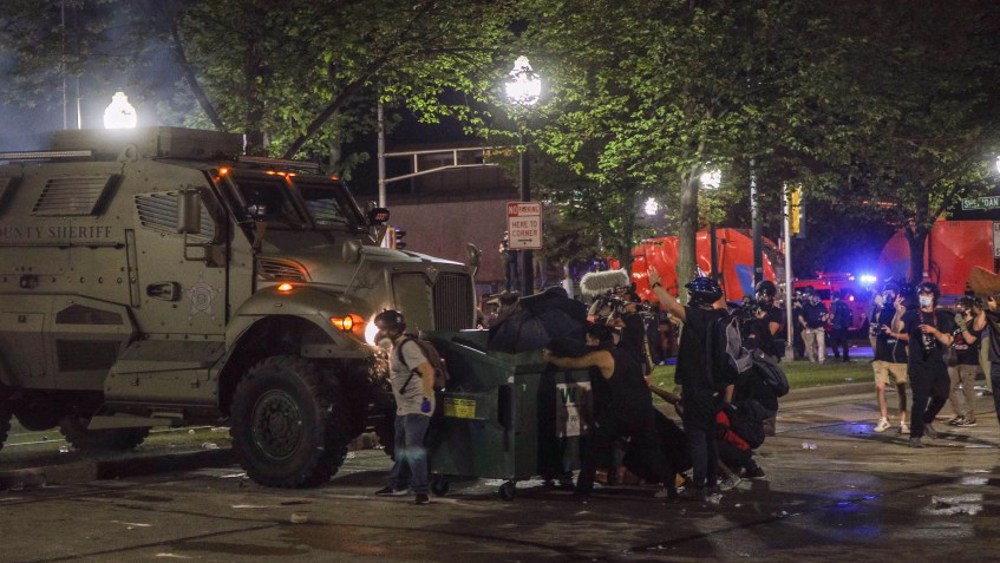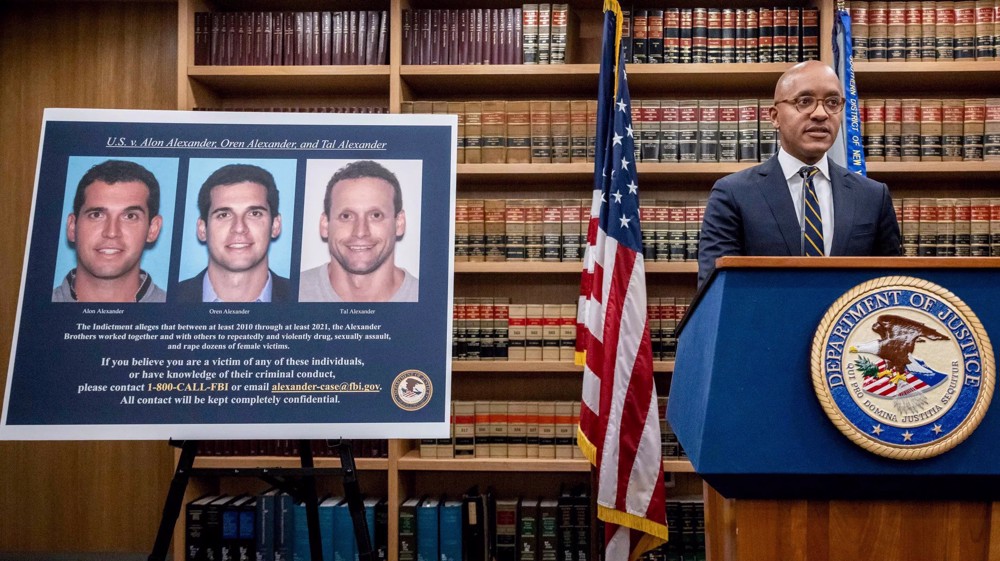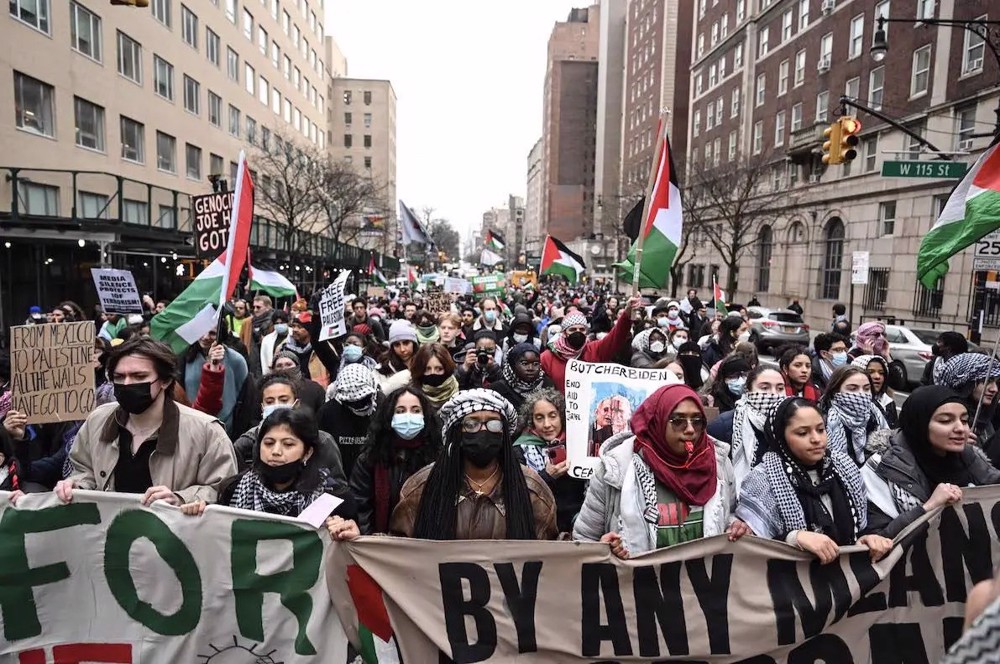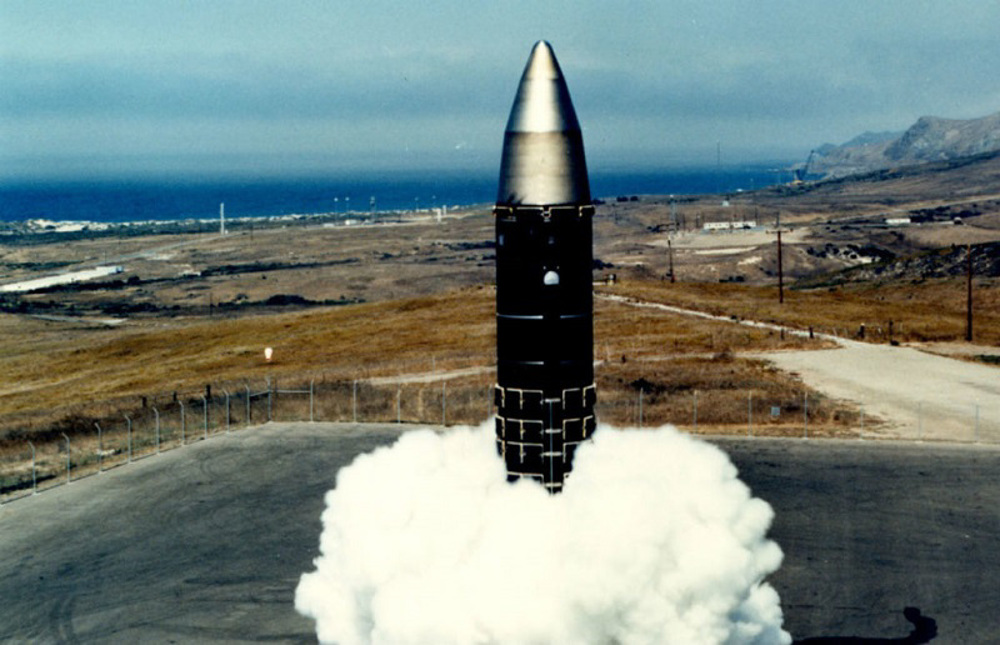More than 150 people arrested in Kenosha over curfew violations
More than 150 people have been reportedly arrested in the US city of Kenosha, which has recently been the scene of anti-racism protests.
According to reports, four of these people have filed a lawsuit against the local authorities over the violation of their free speech rights guaranteed by the US Constitution.
The plaintiffs say more than 150 people are now in custody while pro-police demonstrators are allowed to freely take to the streets.
Things have become tense in Kenosha after the August 23 shooting of an African American by a white policeman. Jacob Blake was shot multiple times in the back and left paralyzed.
US President Donald Trump also visited Kenosha on Tuesday, promising to increase funding to the city’s police force.
Prior to Trump's visit, local officials including the governor of Wisconsin had asked the president not to make the trip, fearing it would flare up tensions.
Trump also made a controversial visit to the properties damaged in the protest, but not Blake’s family.
On Tuesday, the crowd split into two sides on the path of the president’s motorcade. On one side, the protesters held banners and signs of “Black Lives Matter". On the other, the crowd supported the president, with many wearing red white and blue and exhibiting Trump campaign slogans.
A Black Lives Matter (BLM) supporter broke into tears when talking about the racial inequality issue haunting the nation.
"There's so much hat running rampant in this country, and it kills me. It’s heartbreaking. I don’t want this for my children. I don’t want this for our country. Make America Great Again? What? When was this country ever great for us as black people? When? Never!" said the protester.
The BLM protests swept through the US back in May, when another African American, George Floyd was choked to death by a white police officer in Minneapolis
Protests then spread to more cities in the US and across the world as Trump threatened protesters near the White House with the use of “the most vicious dogs and most ominous weapons,” reverberating memories of suppressing the uprising of blacks across the country during the civil rights movement in the 1960s.
‘All wars have rules. All of those rules have been broken’ by Israel
VIDEO | Report flags India’s violation of rights of Rohingya detainees
Turkey's foreign minister meets Syria's de facto leader in Damascus
'Next to impossible' to rescue patients from Gaza's Kamal Adwan Hospital: Director
VIDEO | Vietnam current prosperity
Report blames gasoil exports for shortage at Iranian power plants
VIDEO | Hind Rajab Foundation names Israeli war criminals vacationing after Gaza genocide
VIDEO | Australians rally for Gaza ahead of Christmas festivities











 This makes it easy to access the Press TV website
This makes it easy to access the Press TV website